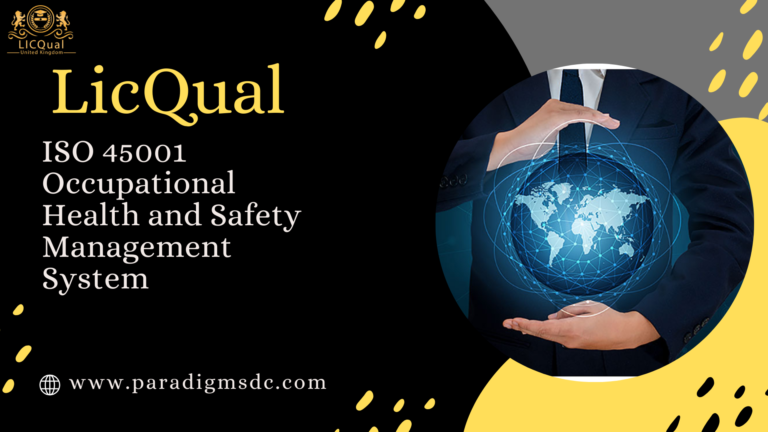The ICTQual Level 6 Diploma in Chemical Engineering is a comprehensive, three-year course designed for individuals seeking to advance their career in the field of chemical engineering. With a total of 360 credits, this qualification equips students with the necessary knowledge, skills, and competencies required to excel in various roles within the industry. Whether you are looking to build on your existing qualifications or pursue a new career path, this diploma provides a robust foundation for future success.
The ICTQual Level 6 Diploma in Chemical Engineering is a specialized program that focuses on the advanced principles and applications of chemical engineering. This qualification covers a wide range of topics, including process design, chemical reaction engineering, thermodynamics, fluid mechanics, and materials science. Over the span of three years, students will develop a deep understanding of both the theoretical and practical aspects of the field.
This diploma is structured to be completed in three years, with each year offering progressively more complex and specialized topics. Throughout the program, students will engage in a combination of lectures, practical labs, project work, and industry placements to ensure they gain hands-on experience alongside academic learning. The course is designed to be both flexible and intensive, allowing students to manage their learning while receiving the support needed to succeed.
The ICTQual Level 6 Diploma in Chemical Engineering is an excellent choice for anyone looking to pursue a career in chemical engineering. Over the course of three years, students will gain a thorough understanding of the field, acquire practical experience, and develop the necessary skills to succeed in a wide range of roles. Whether you are starting your engineering journey or looking to enhance your expertise, this diploma offers the knowledge and credentials you need to thrive in the chemical engineering industry.
Study Units:
Year 1: Foundation of Chemical Engineering
- Introduction to Chemical Engineering
- Basic Thermodynamics
- Mathematics for Chemical Engineers
- Fluid Mechanics
- Material and Energy Balances
- Introduction to Process Control
- Chemistry for Chemical Engineers
- Introduction to Reaction Engineering
- Engineering Drawing and CAD
- Professional Skills Development
- Heat and Mass Transfer Fundamentals
- Chemical Engineering Principles
Year 2: Advanced Chemical Engineering Concepts
- Advanced Thermodynamics
- Heat Transfer
- Mass Transfer Operations
- Chemical Process Design
- Industrial Chemistry
- Process Systems Engineering
- Fluid Dynamics and Flow Systems
- Reaction Engineering
- Environmental Engineering
- Process Control and Automation
- Process Modeling and Simulation
- Engineering Materials
Year 3: Specialization and Industry Application
- Advanced Process Control
- Process Safety and Risk Management
- Chemical Plant Design
- Sustainable Chemical Engineering
- Separation Technology
- Computational Fluid Dynamics (CFD)
- Advanced Materials Science
- Process Optimization
- Industrial Placement / Internship
- Capstone Project
- Project Management for Chemical Engineers
- Biochemical Engineering
Learning Outcomes:
Here are the Learning Outcomes for each study unit in the ICTQual Level 6 Diploma in Chemical Engineering 360 Credits – Three Year:
Year 1: Foundation of Chemical Engineering
1. Introduction to Chemical Engineering
- Understand the core concepts and principles of chemical engineering, including its history and fundamental applications in industry.
2. Basic Thermodynamics
- Apply the first and second laws of thermodynamics to chemical processes and solve related engineering problems.
3. Mathematics for Chemical Engineers
- Use mathematical techniques such as calculus, differential equations, and linear algebra to solve chemical engineering problems.
4. Fluid Mechanics
- Demonstrate knowledge of fluid properties and behavior, and apply fluid flow principles to chemical engineering systems.
5. Material and Energy Balances
- Solve material and energy balance problems for chemical processes, considering inputs, outputs, and transformations.
6. Introduction to Process Control
- Understand basic concepts of process control, including the role of sensors, actuators, and controllers in managing chemical processes.
7. Chemistry for Chemical Engineers
- Apply fundamental principles of organic, inorganic, and physical chemistry to solve engineering problems in the chemical industry.
8. Introduction to Reaction Engineering
- Understand chemical reaction rates and equilibrium and apply basic principles of reaction engineering in simple processes.
9. Engineering Drawing and CAD
- Develop technical drawings and use computer-aided design (CAD) software to create models and design chemical engineering systems.
10. Professional Skills Development
- Enhance communication, teamwork, and problem-solving skills, and demonstrate professionalism in engineering contexts.
11. Heat and Mass Transfer Fundamentals
- Understand the fundamental principles of heat and mass transfer, and apply these to simple engineering processes.
12. Chemical Engineering Principles
- Develop a strong understanding of the core chemical engineering principles and how they integrate to form chemical production systems.
Year 2: Advanced Chemical Engineering Concepts
13. Advanced Thermodynamics
- Analyze complex thermodynamic systems, including phase equilibrium, chemical reactions, and design of energy-efficient processes.
14. Heat Transfer
- Apply heat transfer principles in practical chemical engineering systems, focusing on conduction, convection, and radiation.
15. Mass Transfer Operations
- Solve problems involving mass transfer in processes such as distillation, absorption, and filtration, understanding their application in separation technologies.
16. Chemical Process Design
- Apply process design techniques to create efficient and safe chemical processes, including design and optimization of chemical reactors.
17. Industrial Chemistry
- Understand the application of chemical processes in industrial settings, focusing on materials, catalysts, and large-scale reactions.
18. Process Systems Engineering
- Apply systems thinking and engineering methods to optimize and simulate chemical production processes, ensuring efficiency and sustainability.
19. Fluid Dynamics and Flow Systems
- Analyze fluid dynamics in engineering systems, including pipe design and pump operation, to ensure efficient transport of materials.
20. Reaction Engineering
- Apply advanced principles of reaction kinetics and reactor design to optimize chemical reaction processes in industrial applications.
21. Environmental Engineering
- Understand the environmental impact of chemical processes and apply sustainable practices to minimize pollution and optimize resource use.
22. Process Control and Automation
- Apply advanced control systems and automation technologies to maintain optimal conditions in chemical processing plants.
23. Process Modeling and Simulation
- Use simulation software to model and optimize chemical processes, predicting outcomes and improving efficiency.
24. Engineering Materials
- Understand the properties and selection of materials used in chemical processes, considering factors such as durability, corrosion resistance, and thermal stability.
Year 3: Specialization and Industry Application
25. Advanced Process Control
- Design and implement advanced process control systems, including distributed control systems (DCS) and real-time process monitoring.
26. Process Safety and Risk Management
- Identify potential hazards in chemical processes, apply risk assessment techniques, and design systems to prevent accidents and ensure safety.
27. Chemical Plant Design
- Design and analyze chemical plants, integrating all aspects of process flow, equipment selection, and safety protocols.
28. Sustainable Chemical Engineering
- Apply sustainable chemical engineering practices, focusing on green chemistry, renewable energy, and reducing environmental impact.
29. Separation Technology
- Apply separation techniques such as membrane filtration, distillation, and chromatography to optimize chemical production processes.
30. Computational Fluid Dynamics (CFD)
- Use CFD software to model fluid flow, heat transfer, and chemical reactions in complex engineering systems.
31. Advanced Materials Science
- Analyze the properties and applications of advanced materials used in chemical engineering, focusing on new technologies like nanomaterials.
32. Process Optimization
- Apply optimization techniques to improve the efficiency, cost-effectiveness, and sustainability of chemical processes.
33. Industrial Placement / Internship
- Gain real-world experience in the chemical engineering industry, applying learned concepts and gaining practical skills.
34. Capstone Project
- Undertake an independent research or design project that integrates knowledge from across the curriculum to solve a complex engineering problem.
35. Project Management for Chemical Engineers
- Develop project management skills, including scheduling, budgeting, and coordinating multidisciplinary teams to complete engineering projects.
36. Biochemical Engineering
- Understand the principles and applications of biochemical engineering, focusing on bioreactors, fermentation, and bioprocess design.







